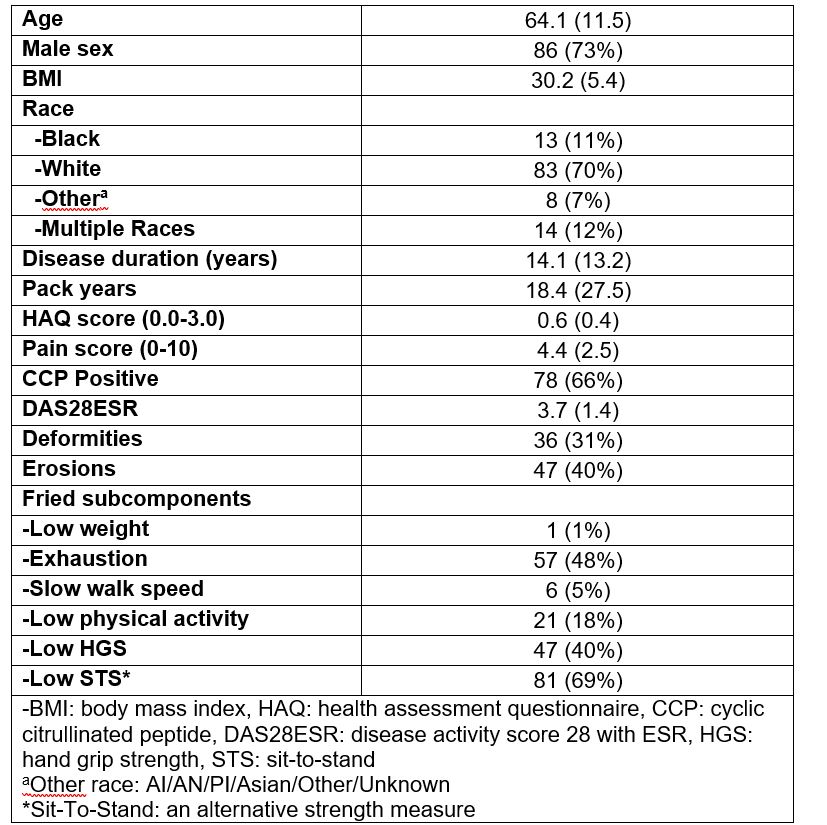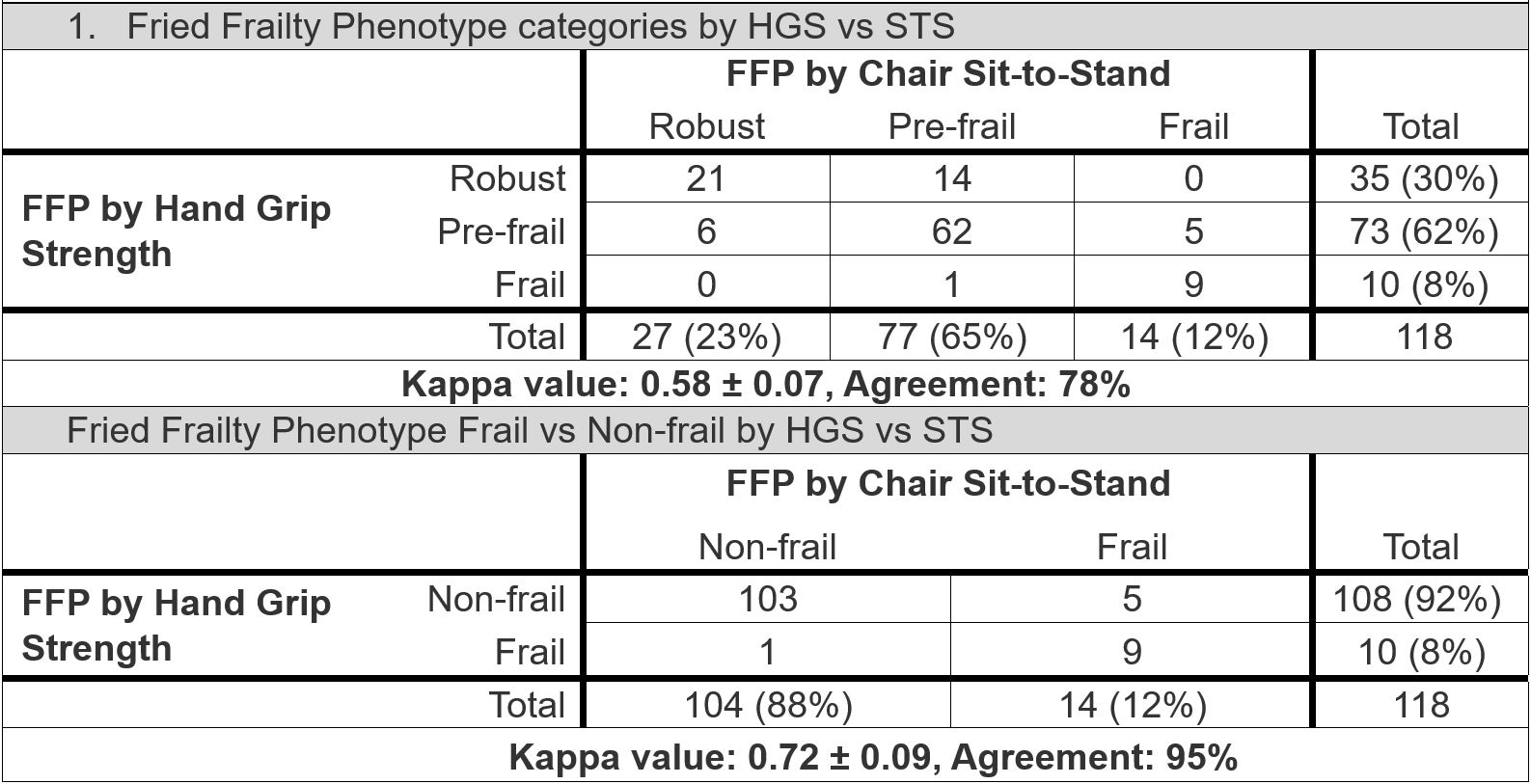Session Information
Session Type: Poster Session A
Session Time: 10:30AM-12:30PM
Background/Purpose: Frailty occurs earlier in people with rheumatoid arthritis (RA) than in the general population and is associated with poor health outcomes1, making it important to identify. Existing frailty measures are difficult to perform in clinical settings due to time constraints and need for specialized tools, such as handheld dynamometers for hand grip strength (HGS) measurement. Chair sit-to-stand (STS) is a valid strength measure that assesses lower body strength2 and has been used to measure frailty in the general population3 and in specific disease states4,5. The aim of this study is to assess the use of STS as an alternative strength measure to HGS to pragmatically assess frailty in RA.
Methods: Data were from the VA Rheumatoid Arthritis Frailty and Osteoporosis cohort which enrolled Veterans with rheumatologist diagnosed RA ≥35 years. Frailty was assessed using the Fried Frailty Phenotype (FFP)6 which includes weight loss, exhaustion, physical activity, walk speed, and strength components, using either the traditional HGS (FFP-HGS) or STS substituted (FFP-STS) for the strength measure. Each component, if met, adds 1 point to the score with a maximum of 5. The FFP is categorized as robust (score 0), pre-frail (score 1-2), and frail (score ≥3). Cutoffs for STS were defined by >12.8 seconds for 5 repetitions3. Kappa tests were performed to evaluate the agreement of FFP-HGS compared to the alternative FFP-STS. This was done both for 3 category FFP (robust, pre-frail, frail) as well as for a dichotomous FFP (frail vs. non-frail).
Results: We evaluated 118 Veterans with RA, 73% were male and 70% were White aged 64.1±11.5 years (Table 1). CCP positivity was 66%, disease duration was 14.1±13.2 years and participants had on average, moderate RA disease activity (3.6±1.4 as measured by DAS28ESR). Exhaustion (48%) and low strength measures (HGS 40%, STS 69%) were the most common frailty components. Compared to FFP-HGS, using the 3 category FFP-STS recategorized 26 (22%) Veterans overall; 19 (16%) Veterans were placed in a higher frailty category while 7 (6%) Veterans’ frailty category decreased. Using the dichotomous FFP-STS, 6 (5%) of Veterans were recategorized; 5 (4%) were recategorized as frail and 1 (1%) was recategorized as non-frail. Kappa testing of the three category FFP showed 78% agreement and 0.58±0.07 kappa value while assessing frail vs non frail resulted in 0.72±0.09 kappa value with 95% agreement (Table 2).
Conclusion: Our data found that substituting STS for HGS demonstrated moderate agreement in assessing phenotypic frailty with all frailty categories and substantial agreement with frail vs non-frail. Using the FFP-STS, more Veterans were classified as frail than using the traditional FFP-HGS. The use of STS could serve as a pragmatic way to assess frailty in routine clinical care. Future work is needed externally validate these findings and to evaluate the association of these measures with important health outcomes.
1. Gao RC et al. Joint Bone Spine. 2022
2. Bohannon RW et al. Isokinet Exerc Sci. 2010
3. Kim M et al. JAMDA. 2022
4. Lai JC et al. Hepatology. 2017
5. Manay P et al. Surgery. 2021
6. Fried L et al. J Gerontol A Biol Sci Med Sci 2001
To cite this abstract in AMA style:
Brubeck H, Riggles K, Bass R, Wahl E, Andrews J, Singh N, orkaby a, Baker J, Katz P, Shoback D, Garcia J, Wysham K. Use of Chair Sit-to-Stand as a Pragmatic Alternative to Assess Frailty in Rheumatoid Arthritis [abstract]. Arthritis Rheumatol. 2024; 76 (suppl 9). https://acrabstracts.org/abstract/use-of-chair-sit-to-stand-as-a-pragmatic-alternative-to-assess-frailty-in-rheumatoid-arthritis/. Accessed .« Back to ACR Convergence 2024
ACR Meeting Abstracts - https://acrabstracts.org/abstract/use-of-chair-sit-to-stand-as-a-pragmatic-alternative-to-assess-frailty-in-rheumatoid-arthritis/


